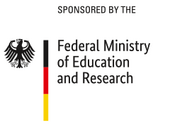Ensuring optimal and continuous care for patients is a major challenge in the German healthcare system. Discharge management plays a key role in this process because it is responsible for continuity of care and communication between the various stakeholders involved. In this context, discharge management is confronted with challenges such as the continuous adjustment of the planning of follow-up needs and the high communication and documentation effort. The use of artificial intelligence (AI) should help to determine individual aftercare needs at an early stage, to automate the low-threshold individual transfer of information and knowledge, and to support the documentation of services.
Due to different constellations, discharge management often ends up in a reactive and compensatory role. For the hospital, this means a potential prolongation of the length of stay, and for the patients, the risk of uninterrupted care. Crisis-like developments after the transfer of patients to other facilities often have their origin during the inpatient stay, if no timely or systematic determination of post-inpatient requirements takes place. This challenge is further exacerbated by the existing shortage of healthcare professionals in the various healthcare facilities.
The project "Interactive AI assistance for predictive and flexible control in discharge and transition management" (KIAFlex) is intended to make it possible to recognize individual aftercare needs at an early stage. This should ensure a seamless transition from inpatient stay to aftercare and at the same time relieve clinical staff, by assisting with planning. The German Research Center for Artificial Intelligence (DFKI), Nubedian, Empolis, Furtwangen University of Applied Sciences, the university hospital Bonn and the university hospital Mannheim are jointly researching AI-supported control in discharge and transition management.
Partners
Nubedian GmbH
Empolis Information Management GmbH
Hochschule Furtwangen
Universitätsklinikum Bonn
Universitätsklinik Mannheim


 Prof. Dr. Ralph Bergmann
Prof. Dr. Ralph Bergmann
